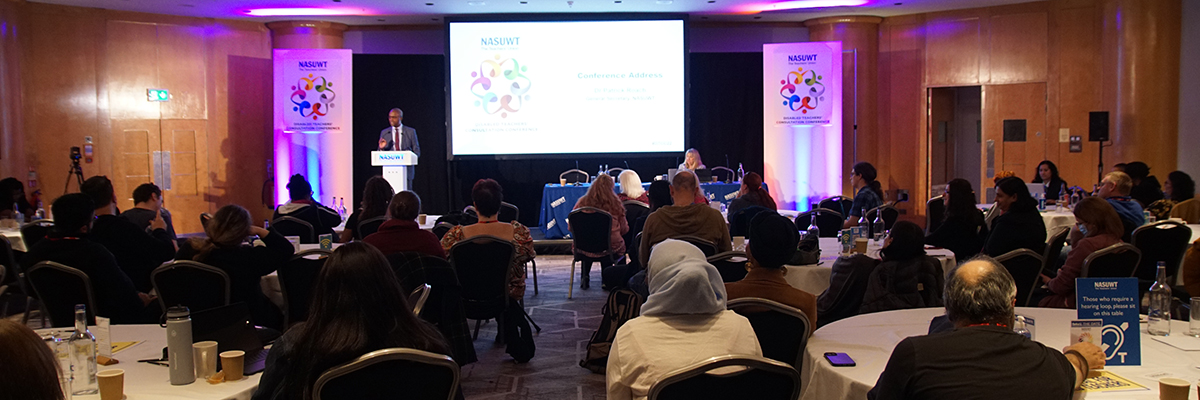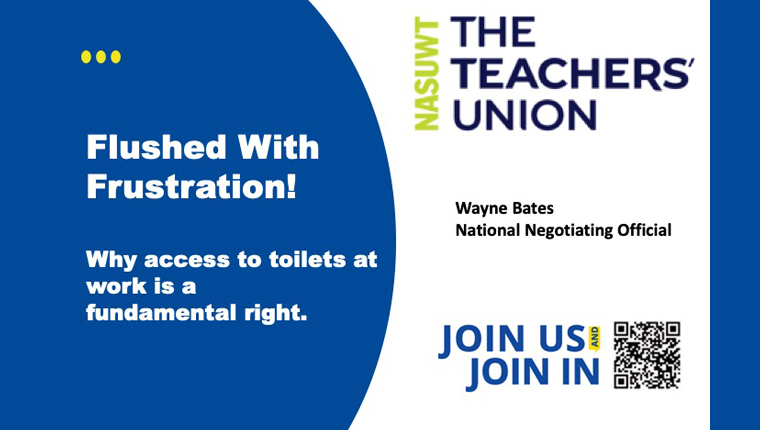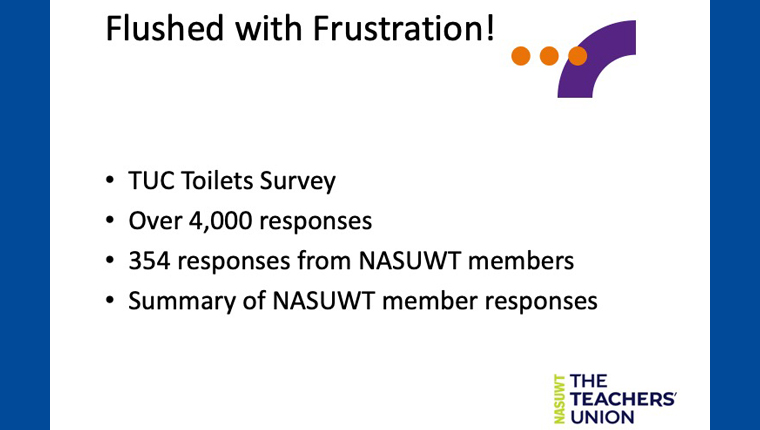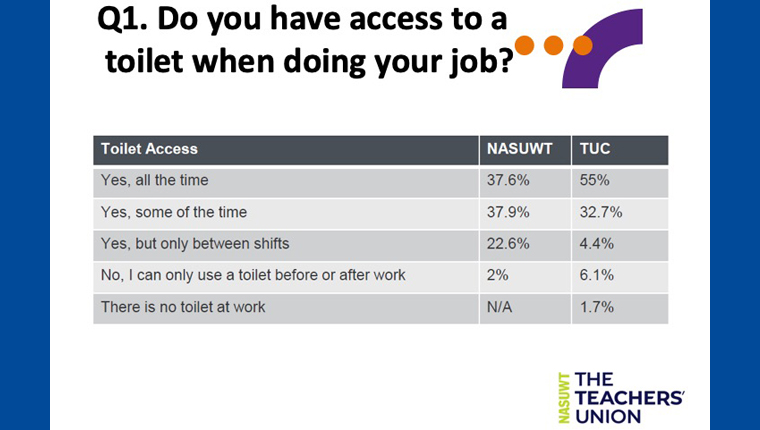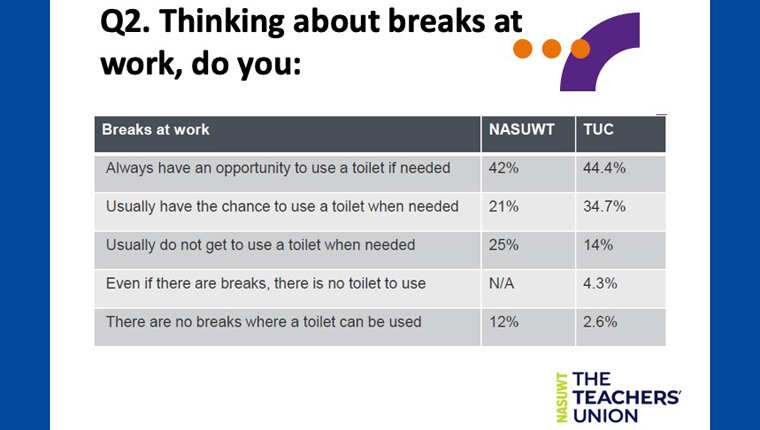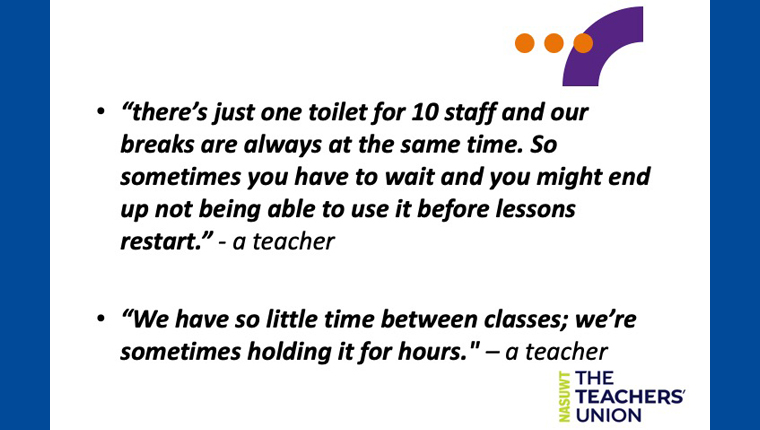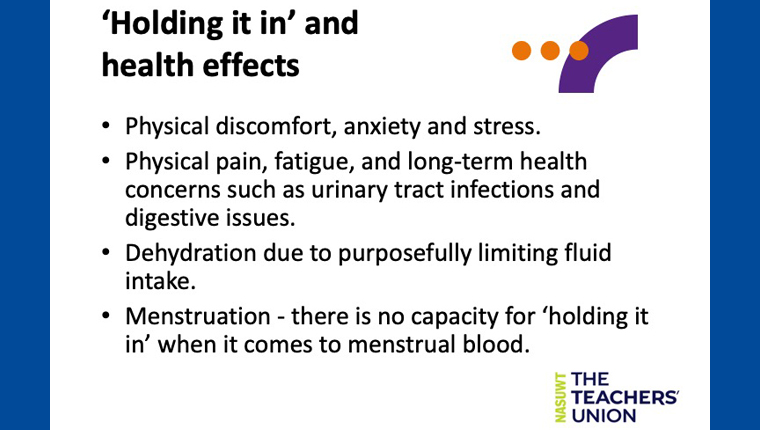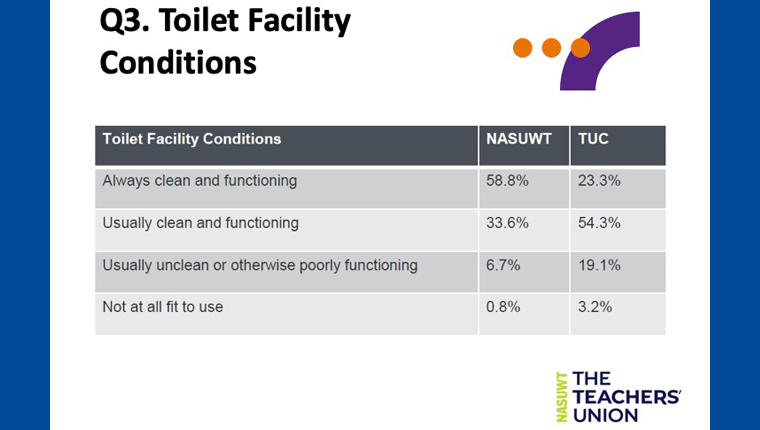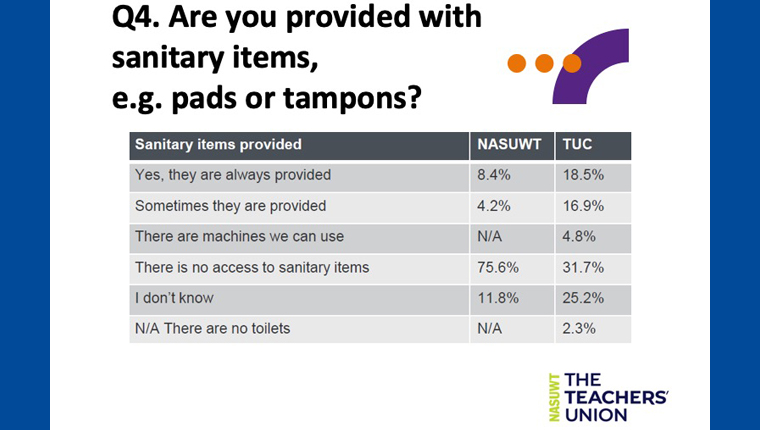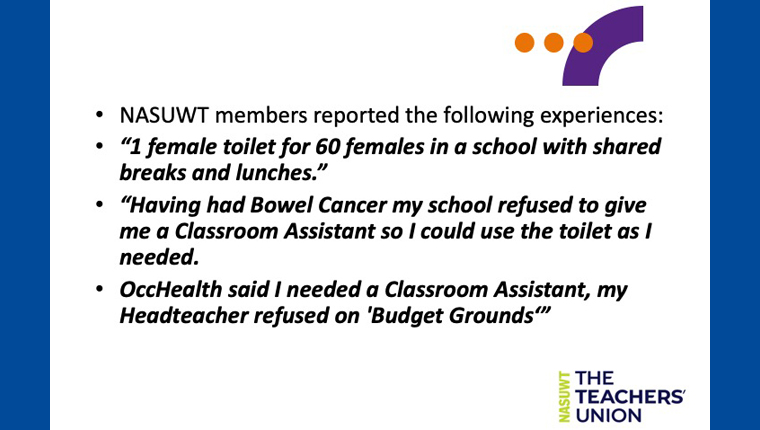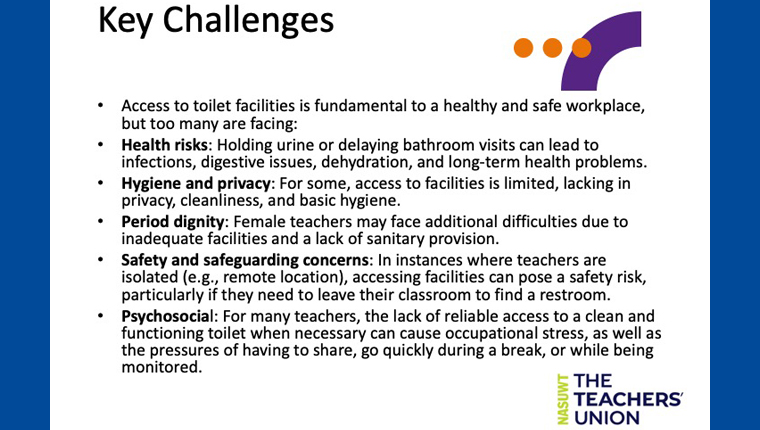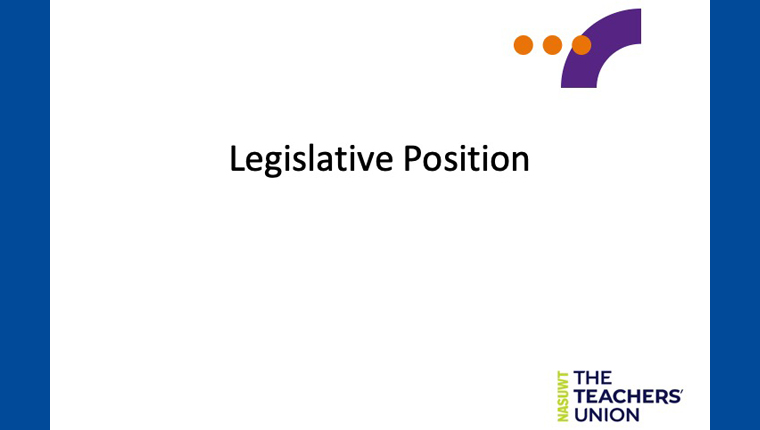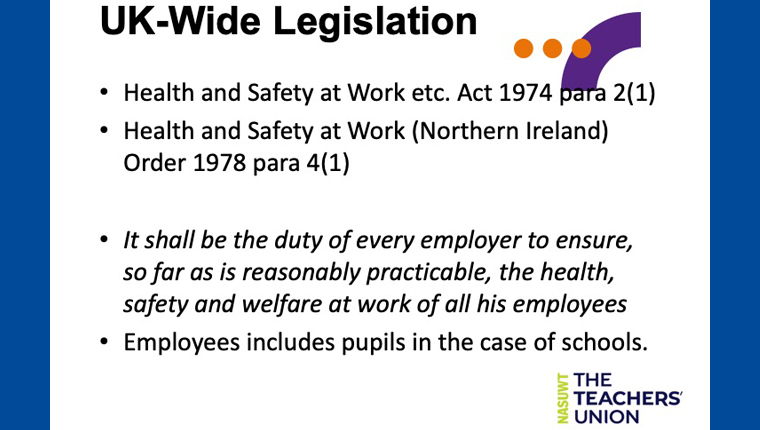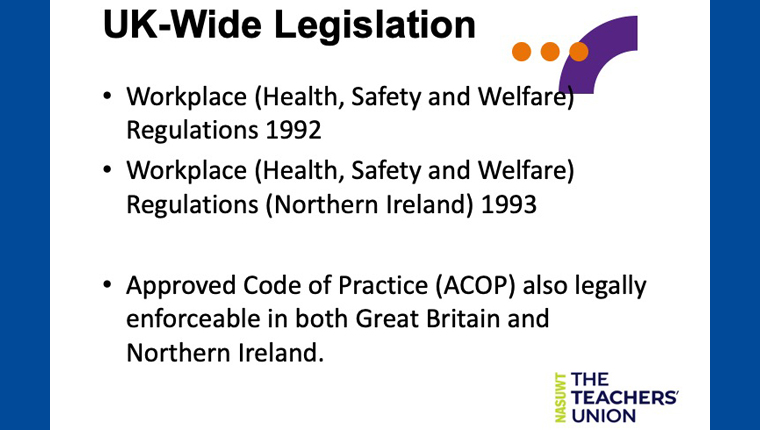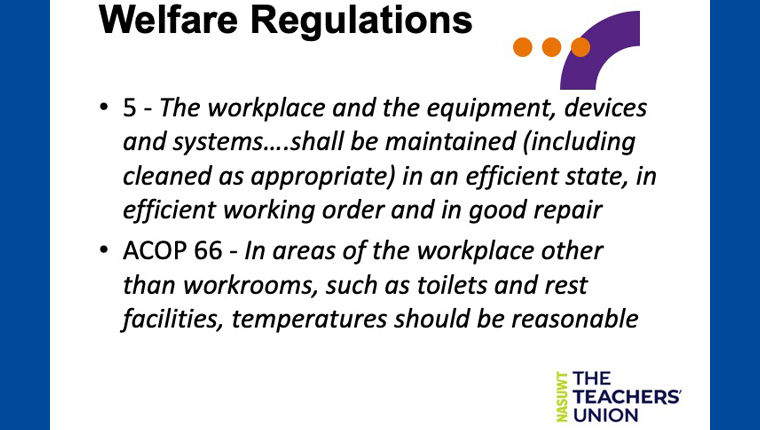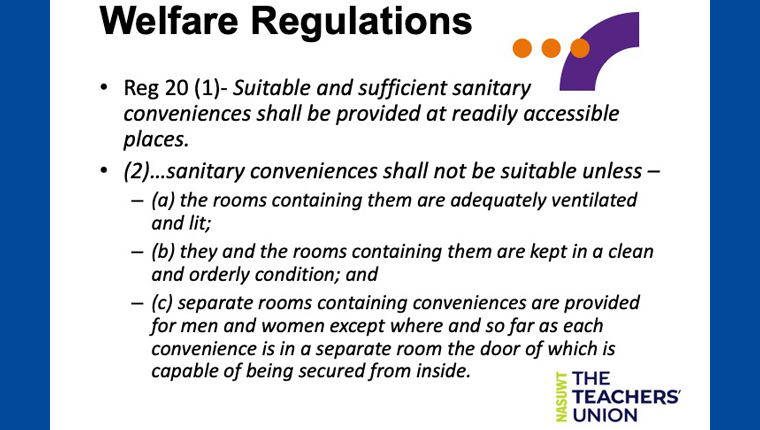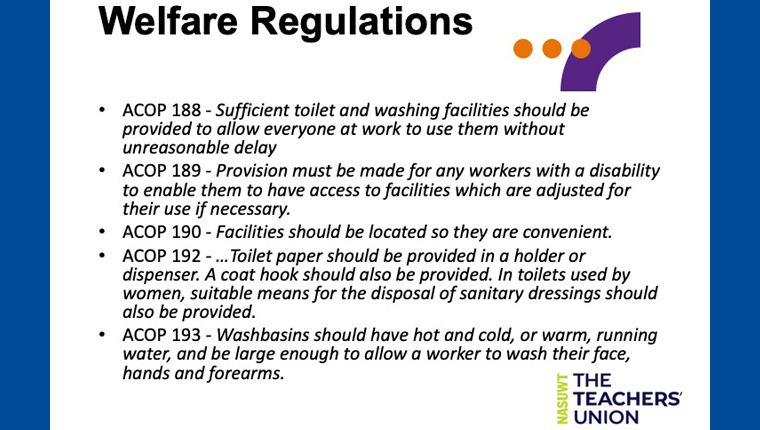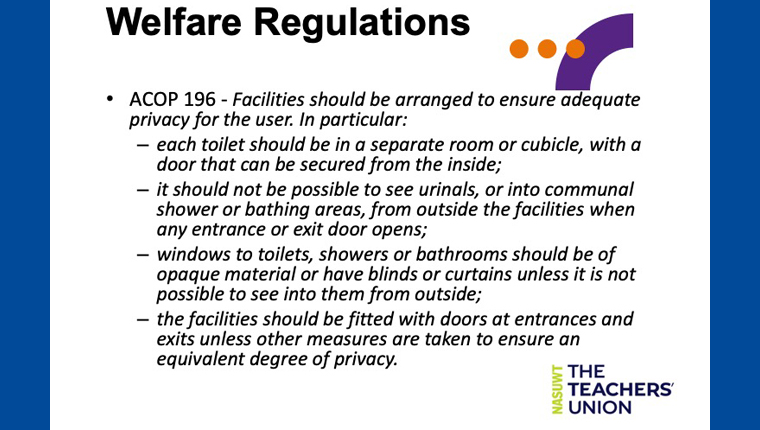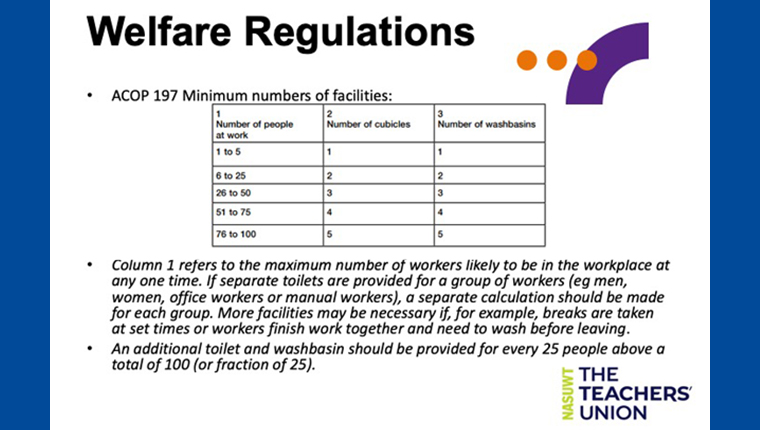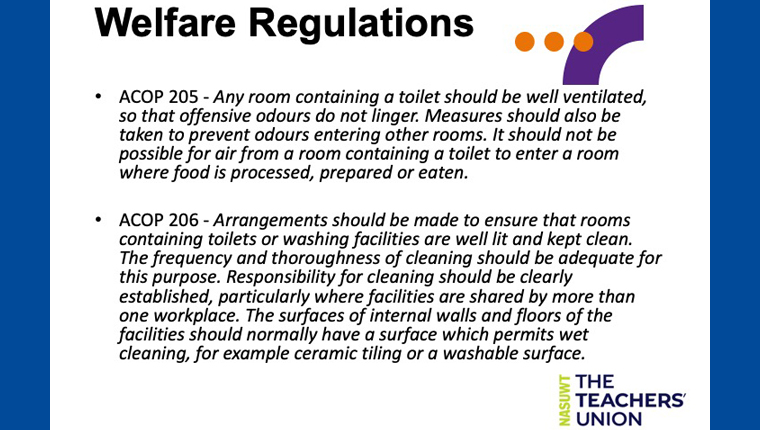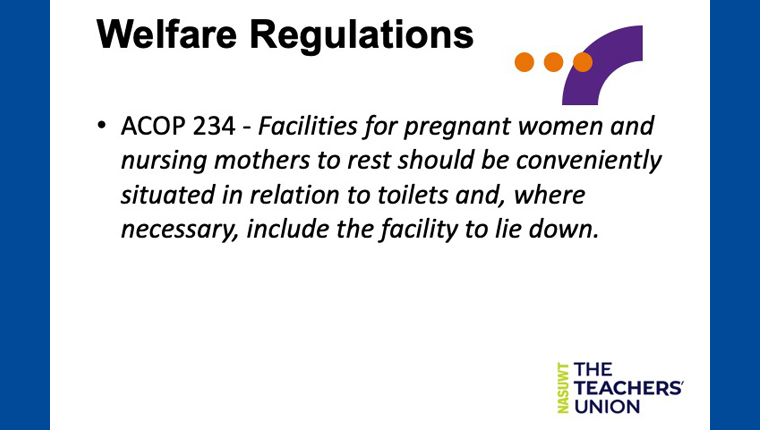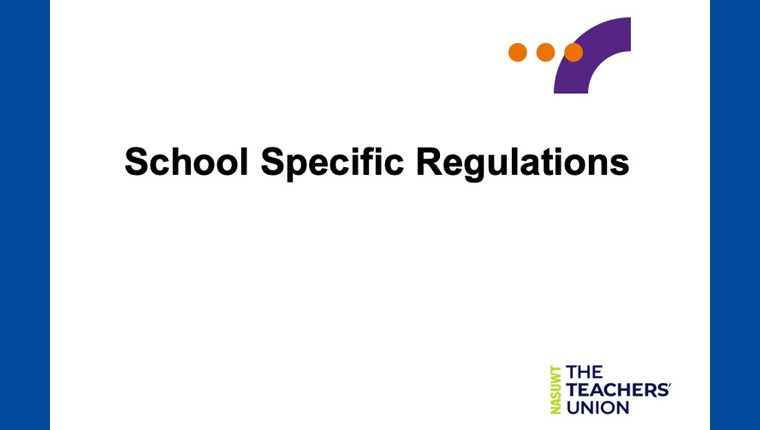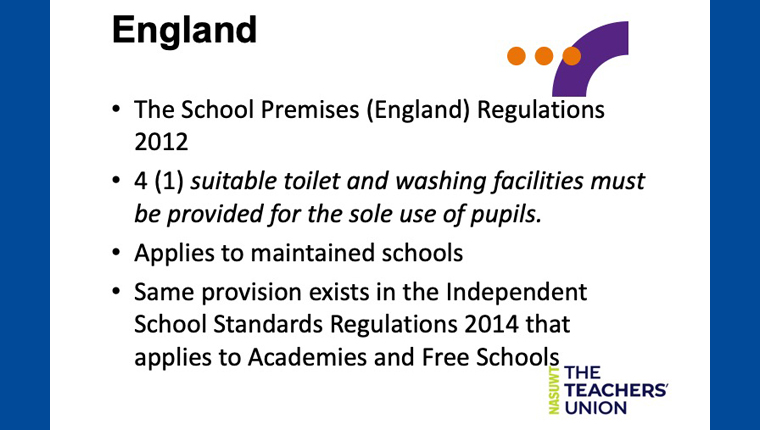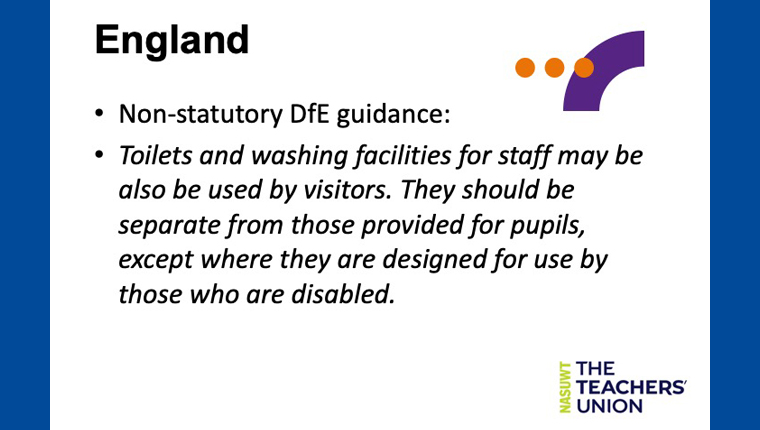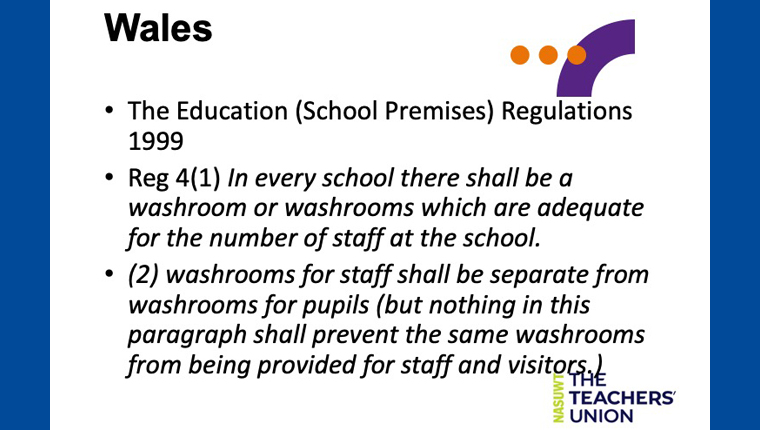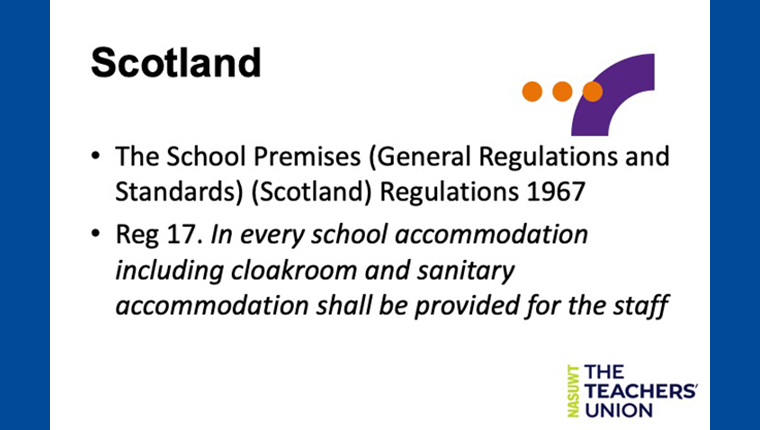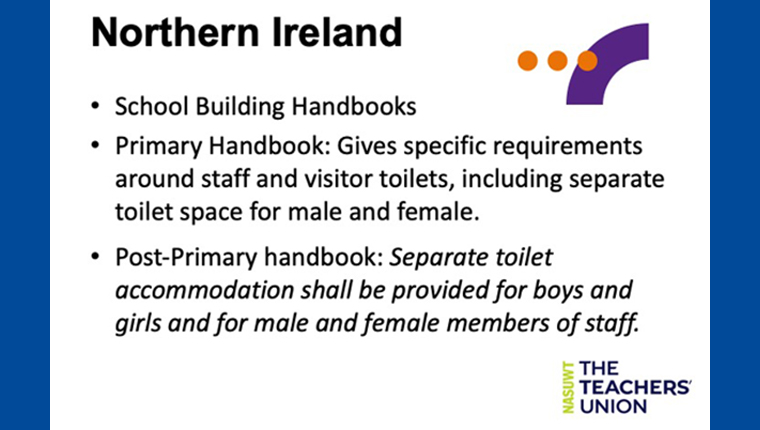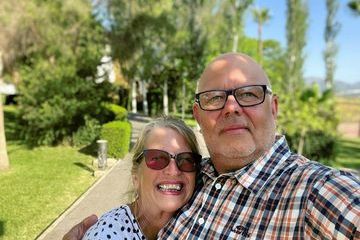The Disabled Teachers’ Consultation Conference offers a safe space to explore key issues and challenges you face in your career, share experiences with other disabled members and contribute ideas for the future of your Union.
These events are FREE to eligible members and provide you with the opportunity to take part in seminars and workshops.
Events will be listed in this section as they become available. Tap/click for details of the event and how to book.
NASUWT conferences and events are strictly for adults only due to the nature of the content shared and no children will be permitted into any areas of the conference.
Visit the accessibility guide for the Hilton Metropole
Disabled Teachers’ Consultation Conference 2025
The 2025 Disabled Teachers’ Consultation Conference was held at the Hilton Birmingham Metropole Hotel on Saturday 14 June under the theme ‘Disabled Teachers, Bold Voices: Activism in Action’.
Chairing the Conference, NASUWT President Wayne Broom welcomed General Secretary Matt Wrack to give the keynote address.
Matt Wrack began by paying tribute to members for attending and those who are also involved in the NASUWT Disabled Members' Advisory Committee.
Mr Wrack said, ‘NASUWT has long since promoted disability as a fundamental principle of equality, justice and fairness that must run through every part of our education system and every layer of our union.
‘Despite some progress, too many disabled educators still face systemic barriers, whether that’s in accessing appropriate adjustments, facing ableist assumptions about competence or navigating performance management processes that too often fail to account for the reality of living with a disability.
‘As a union, we are committed to fighting that inequality. But we cannot do it without you. Your views, your experiences need to be built into the democracy of the union, representing all strands and members in marginalised groups.
‘The familiar refrain ‘Nothing about us without us’ is not just a slogan. It’s a principle we must live by. Disabled members must be at the centre of the union’s decision-making, not on the margins. Your voices, your lived experiences, must shape our priorities, our campaigns and our policies.’
‘Equality at work is about more than making adjustments for disabled teachers. It is about creating environments where all teachers can thrive, not just survive.’
Mr Wrack encouraged disabled teachers to become more active in the union saying, ‘Our Union can only grow and thrive if it reflects the diversity of the teaching profession. We need more disabled members involved in organising, negotiating, mentoring and leading. Without your knowledge and insight, we miss vital truths about our workplaces and our union.
‘Your activism matters. Whether you’re a Local Secretary or a Workplace Rep or someone simply willing to share your story, you are helping to shape the future of this union. This in turn empowers others to join in and take part.’
Moving on to welfare reform, Mr Wrack outlined the ongoing impact on disabled people, particularly the review of personal independence payments (PIP), which is creating fear and insecurity for many disabled workers.
‘Welfare reforms that force disabled workers into unemployment and greater poverty are shocking. The narrative is deeply damaging and rooted in outdated, harmful assumptions that risk further marginalising disabled people and worsening the pressures on those already struggling.’
Mr Wrack continued, ‘Let me be absolutely clear: our union, alongside other affiliate unions within the TUC, will stand against punitive welfare reform. We will campaign against any measures that stigmatise or punish disabled workers. And we will amplify your voices in every forum we can.’
The NASUWT emergency motion ‘Disabled Workers Oppose Welfare Reforms’ went to TUC Congress on this exact issue and NASUWT disability activist and champion Kat Downs spoke at the TUC Conference. Ms Downs was also re-elected to the TUC Disabled Workers’ Committee.
Mr Wrack also talked about NASUWT advocacy for members who have faced disability discrimination, saying that while these cases are successful, they demonstrate a wider failure of the education system.
‘This year, we have secured five-figure compensation payouts for members who have been made redundant using discriminatory criteria or whose employment was ended on the basis of a discriminatory performance management process.
‘We won a successful tribunal claim against a local authority employer regarding the misapplication of their sick pay policy which disproportionately impacted disabled workers.’
Due to NASUWT’s successful campaigning, the government is now intending to bring in new legislation to make employers introduce pay gap reporting for Black and disabled staff, similar to current gender pay gap reporting.
NASUWT also provided evidence to the government and the School Teachers’ Review Body (STRB) about the stark disparities in pay between disabled and non-disabled school staff.
Our mission is to build a union that is not just for disabled members, but with disabled members. That means:
-
challenging ableism wherever it appears;
-
investing in training and leadership development for disabled activists;
-
ensuring our meetings, materials and communications are accessible and inclusive; and
-
campaigning - inside and outside education - for a society where disabled teachers, disabled people have rights and justice.
Mr Wrack said it is important that we intersect disability impacts into other areas of our equalities work, such as bullying and harassment and that the Equal Opportunities Committee has prioritised disability and neurodiversity as one of their key campaigns this year.
He finished by saying, ‘Help us shape the union we need for the future. Get involved. Be bold. Hold us to account. And know that your union stands with you.’
A short Q&A session included questions from members on ableist rhetoric, attacks on welfare and culture wars, fair treatment of disabled supply teachers and lack of scrutiny, and profiteering by agencies and more generally what’s going wrong in the education sector where money is being privatised.
Plenary session: Flushed with frustration! Why access to toilets at work is a fundamental right
Members gathered together for a presentation setting out the NASUWT Workplace Campaign designed to address the issues some teachers face in accessing adequate toilet facilities in schools.
NASUWT National Negotiating Official Wayne Bates outlined the issues, saying that in addition to the health impacts brought about by inadequate facilities, there are significant psychosocial implications, particularly for some disabled teachers.
The ‘School Toilet Facilities Campaign Toolkit’ provides a comprehensive guide to enable Workplace Representatives to advocate effectively for improvements in toilet and hygiene facilities, equipping you with the knowledge, resources and strategies needed to bring about positive change.
You can read about more about the basic legislative requirements for workplace sanitary provision and your rights on our Hygiene and Welfare page.
Plenary session: Disabled, not invisible: Championing change in education
Members attending the Conference were then able to directly interact with members of the NASUWT Disabled Members' Advisory Committee:
-
Claire Ward (chair);
-
Kat Downs; and
-
Lara Morris.
Some of the issues discussed were PIP and carer’s allowance, disability equality and unintentional discrimination, how to increase participation in union organising, and reasons for attending the conference.
Members were also able to take part in smaller workshop sessions held over the course of the day:
-
Online searches of shortlisted candidates - an equalities issue
-
Sarah Cull, NASUWT Principal Official (Education)
-
-
Barriers to leadership and how to overcome them
-
Gilroy Brown, Educational Consultant
-
-
Enabling energy, wellbeing and impact for disabled teachers to thrive
-
Anna Reddy, Workplace Health, Wellbeing and Performance Coach
-
-
Organising for change: How to write a successful motion
-
Kat Downs, Vice-Chair, NASUWT Disabled Members' Advisory Committee
-
Next steps
The issues and outcomes from the Conference will inform the Union’s continued campaigning and organising work on disability equality.
Going forward, the voices and experiences of the Union’s Disabled Members’ Advisory Committee will be front and centre to our work on disability equality and inclusion.
Don’t miss out
If you’re not yet a member but want to attend our Disabled Teachers’ Consultation Conferences, and get access to other exclusive member benefits, why not join today?
You can find out more about why you should join us or go straight to our Online Joining site to take full advantage of our wider programme of events, training and discount scheme.
Want more influence?
The NASUWT is a member-led Union, which means you getting actively involved in your Union to support your colleagues and fellow teachers at work.
Getting active in the Union can take a variety of forms and will mean you get access to FREE training, support, and personal and professional development: you can be proud in the knowledge that you are undertaking a role that helps teachers in their workplaces.
Calculate your travel carbon footprint
As part of our commitment to reducing our carbon footprint, particularly at our conferences and events, we'd like to share a tool allowing you to understand the environmental impact of your journey and identifying low-carbon door-to-door travel plans that help you towards net-zero travel.
Try the You.Smart.Thing travel planner.
Anonymous feedback
If you require a response from us, please DO NOT use this form. Please use our Contact Us page instead.
In our continued efforts to improve the website, we evaluate all the feedback you leave here because your insight is invaluable to us, but all your comments are processed anonymously and we are unable to respond to them directly.

